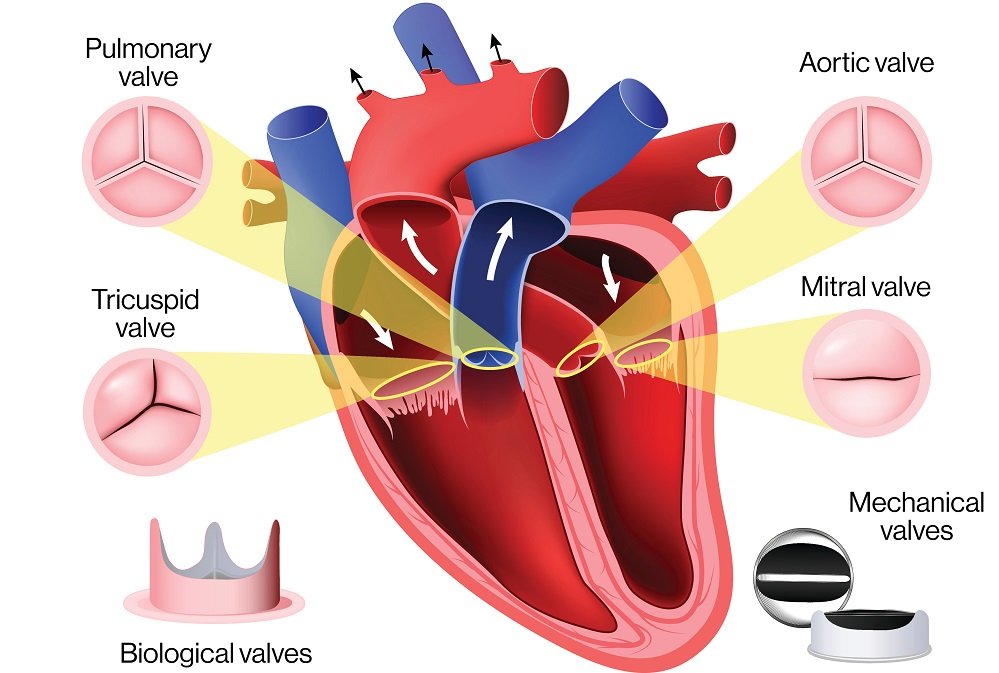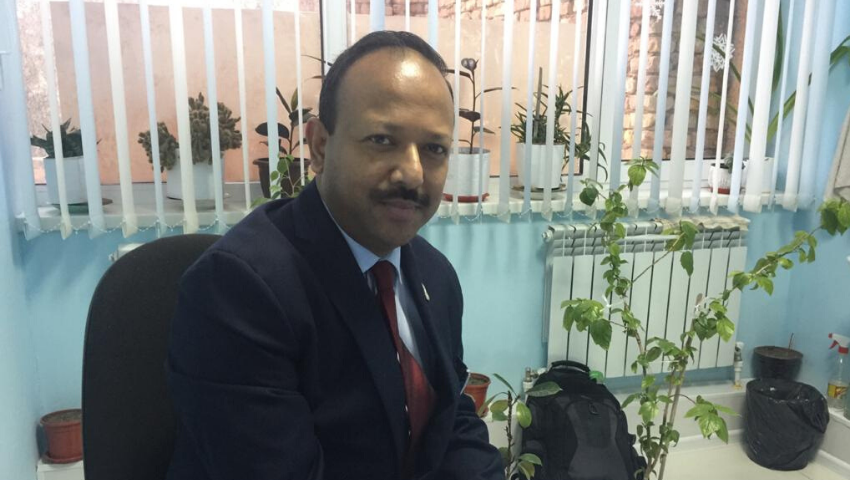80% of the heart valve replacement surgery in India are done on patients who have suffered from Rheumatic fever in childhood. This surgical process leads to
Understanding The Heart Valve Replacement Surgery
Heart valve replacement surgery is used to repair or replace diseased heart valves. Blood that flows between different chambers of your heart and into large arteries must also flow through a heart valve. These heart valves open up enough so that blood can flow through. They then close, keeping blood from flowing backward.

There are six heart valve:
- Aortic valve
- Mitral valve
- Tricuspid valve
- Pulmonic valve
- Biological Valve
- Mechanical Valve
The aortic heart valve is the most common valve to be replaced because it cannot be repaired. The mitral valve is the most common valve to be repaired. Only rarely is the tricuspid valve or the pulmonic valve repaired or replaced.
Important Information About Heart Valve Replacement Surgery
Before your heart valve repair surgery you will receive general anesthesia. You will be asleep and unable to feel pain. In open heart surgery, the surgeon makes a large surgical cut in your breastbone to reach the heart and aorta. You are connected to a heart-lung bypass machine or bypass pump. Your heart is stopped while you are connected to this machine. This machine does the work of your heart, providing oxygen and removing carbon dioxide.
Minimally invasive valve surgery is done through much smaller cuts than open surgery, or through a catheter inserted through the skin.
Several different techniques are used during surgery:
- Percutaneous surgery (through the skin)
- Robot-assisted surgery
If your heart surgeon can repair your mitral valve, you may have:
- Ring annuloplasty —The surgeon repairs the ring-like part around the valve by sewing a ring of plastic, cloth, or tissue around the valve.
- Valve repair —The surgeon trims, shapes, or rebuilds one or more of the leaflets of the valve. The leaflets are flaps that open and close the valve. Valve repair is best for the mitral and tricuspid valves. The aortic valve is usually not repaired.
If your valve is too damaged, you will need a new valve. This is called heart valve replacement surgery. Your surgeon will remove your valve and put a new one in place.
The main types of new heart valves are:
- Mechanical — made of man-made materials, such as metal (stainless steel or titanium) or ceramic. These valves last the longest, but you will need to take blood-thinning medicine, such as warfarin (Coumadin) or aspirin, for the rest of your life.
- Biological — made of human or animal tissue. These valves last 12 – 15 years, but you may not need to take blood thinners for life.
Mechanical and Biological Heart Valve (Courtesy: St. Jude Inc.)
In some cases, heart surgeon can use your own pulmonic valve to replace the damaged aortic valve. The pulmonic valve is then replaced with an artificial valve (this is called the Ross Procedure). This procedure may be useful for people who do not want to take blood thinners for the rest of their life. However, the new aortic valve does not last very long and may need to be replaced again by either a mechanical or a biologic valve.
Why The Procedure is Performed
- You may need surgery if your valve does not work properly.
- A valve that does not close all the way will allow blood to leak backwards. This is called regurgitation.
- A valve that does not open fully will limit forward blood flow. This is called stenosis.
You may need heart valve replacement surgery for these reasons:
- Defects in your heart valve are causing major heart symptoms, such as chest pain (angina), shortness of breath, fainting spells (syncope), or heart failure.
- Tests show that the changes in your heart valve are beginning to seriously affect your heart function.
- Your doctor wants to replace or repair your heart valve at the same time as you are having open heart surgery for another reason, such as a coronary artery bypass graft surgery.
- Your heart valve has been damaged by infection (endocarditis).
- You have received a new heart valve in the past and it is not working well, or you have other problems such as blood clots, infection, or bleeding.
Some of the heart valve replacement problems treated with surgery are:
- Aortic insufficiency
- Aortic stenosis
- Congenital heart valve disease
- Mitral regurgitation – acute
- Mitral regurgitation – chronic
- Mitral stenosis
- Mitral valve prolapse
- Pulmonary valve stenosis
- Tricuspid regurgitation
- Tricuspid Valve Stenosis
Before Heart Valve Surgery Procedure
Your preparation for the procedure will depend on the type of valve surgery you are having:
- Aortic valve surgery – minimally invasive
- Aortic valve surgery – open
- Mitral valve surgery – minimally invasive
- Mitral valve surgery – open
After Heart Valve Surgery Procedure
Your recovery after the procedure will depend on the type of valve surgery you are having:
- Aortic valve surgery – minimally invasive
- Aortic valve surgery – open
- Mitral valve surgery – minimally invasive
- Mitral valve surgery – open
The average hospital stay is 5 – 7 days. The nurse will tell you how to care for yourself at home. Complete recovery will take a few weeks to several months, depending on your health before surgery.
Outlook (Prognosis)
The success rate of heart valve surgery is high. The operation can relieve your symptoms and prolong your life.
Mechanical heart valves do not often fail. Artificial valves last an average of 8 – 20 years, depending on the type of valve. However, blood clots can develop on these valves. If a blood clot forms, you may have a stroke. Bleeding can occur, but this is rare.
There is always a risk of infection. Talk to your doctor before having any type of medical procedure.
The clicking of mechanical heart valves may be heard in the chest. This is normal.




